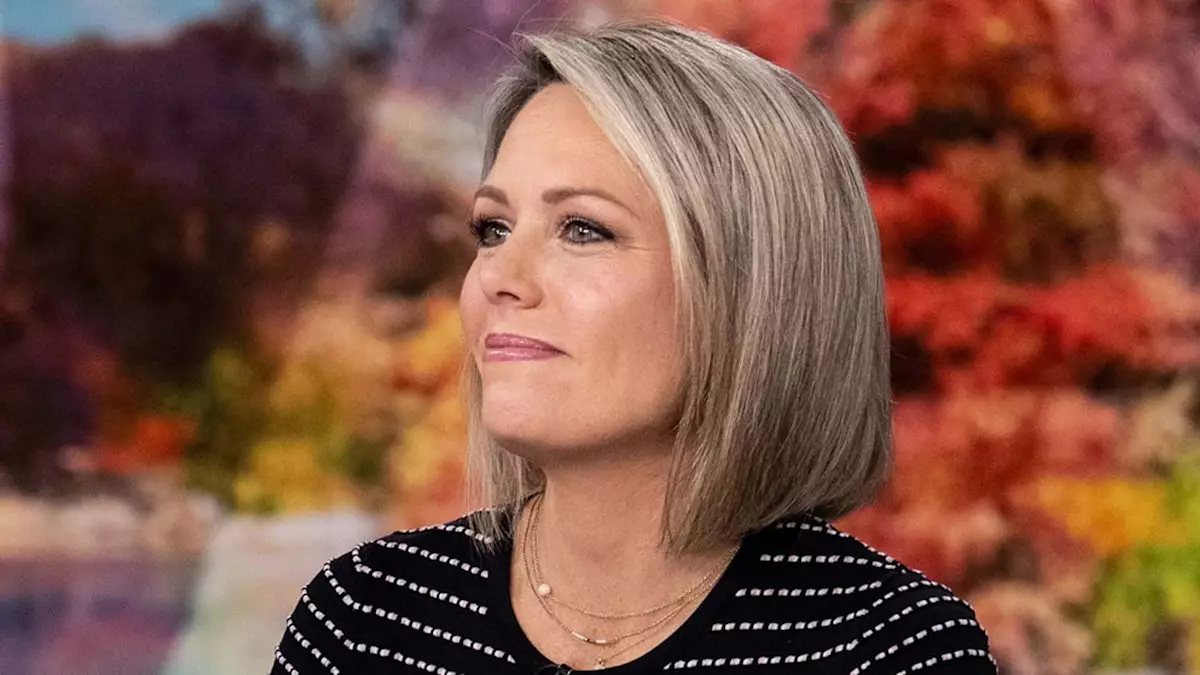Dylan Dreyer, a familiar face from the Today Show, has emerged as a passionate advocate for those affected by celiac disease, including her own son, Calvin. The challenges of managing food allergies can feel overwhelming for families, and Dreyer’s proactive approach is both inspiring and necessary. As a mother of three, she not only navigates the complexities of parenting but also faces the added hurdle of ensuring her son has safe food options in various environments. Her commitment to raising awareness about gluten-free choices is both enlightening and a rallying cry for others who encounter similar struggles.
The story of Dreyer’s advocacy is tied closely to her family’s experiences and Calvin’s diagnosis in 2023. This unfortunate yet relatable journey reflects the struggles many families face—finding safe food options in everyday locations. While Dreyer could easily have kept her challenges private, she chooses instead to utilize her public platform, fostering a greater understanding and advocacy for those fighting similar battles.
Breaking Barriers in Public Spaces
Dreyer’s efforts were prioritized during a recent family outing to a Boston Red Sox game, highlighted as a Celiac Awareness Night. Here, the team made strides by providing gluten-free options, allowing Calvin to eat alongside his family without anxiety. The joy of being able to experience such a quintessential American pastime—without the constant worry of cross-contamination or unavailability of safe food—shows how thoughtful inclusivity can transform lives. Dreyer emphasized this sentiment during her appearance on Today, expressing how activities typically regarded as mundane became joyous milestones for her family.
Her remarks underline a critical issue; families with dietary restrictions frankly shouldn’t have to check food menus with the fervor of an accountant examining spreadsheets. By opting to address these prevalent issues publicly, Dreyer is not only giving a voice to families like hers but also encouraging businesses and venues to be more cognizant of their patrons’ needs.
Advocacy for Change in the Food Industry
What sets Dreyer apart in this discourse is her proactive stance on the need for structural changes within restaurants and supermarkets. Her commitment to raising awareness extends beyond personal anecdotes; she regularly shares gluten-free recipes and engages with her audience through cooking segments on Today. Her transparency regarding this journey reveals deep-seated frustrations many share. The disparity in gluten-free options available in the United States compared to other countries, particularly the UK, highlights a systemic gap in food inclusivity.
During her work trip to the UK in 2024, Dreyer’s revelations about the affordability and availability of gluten-free products were nothing short of eye-opening. The stark contrast in pricing and variety from British supermarkets painted a broader picture of how certain industries have adapted to meet dietary restrictions more effectively than their counterparts in the U.S. This is not just about access to gluten-free flour; it speaks volumes about the level of consideration of consumer needs in different markets.
Redefining Mainstream Accessibility
Dreyer’s candid observations raise pertinent questions about how seriously celiac disease is taken within the American food industry. Her feelings of frustration resonate with many who feel marginalized by companies that still view gluten-free options as secondary or “niche” rather than essential. The appetite for change is growing, and Dreyer, with her platform, is keenly aware of her opportunity to advocate for inclusivity that should exist across every facet of dining—from airport terminals to local eateries.
This situation begs for a realization from food corporations that catering to dietary needs is not merely a trend but a necessity. As the demand for gluten-free products increases, companies must recognize that their commitment to diversity in dietary offerings is directly tied to their market responsiveness.
With a growing community rallying around the challenges posed by dietary restrictions, Dreyer’s voice will continue to echo in conversations about food inclusivity, dignity, and respect for dietary needs. Her advocacy work not only transforms her family’s experiences but also drives a larger shift in public awareness and corporate responsibility, cultivating an environment where everyone can partake in the joys of sharing meals together—free from worry or limitation.

